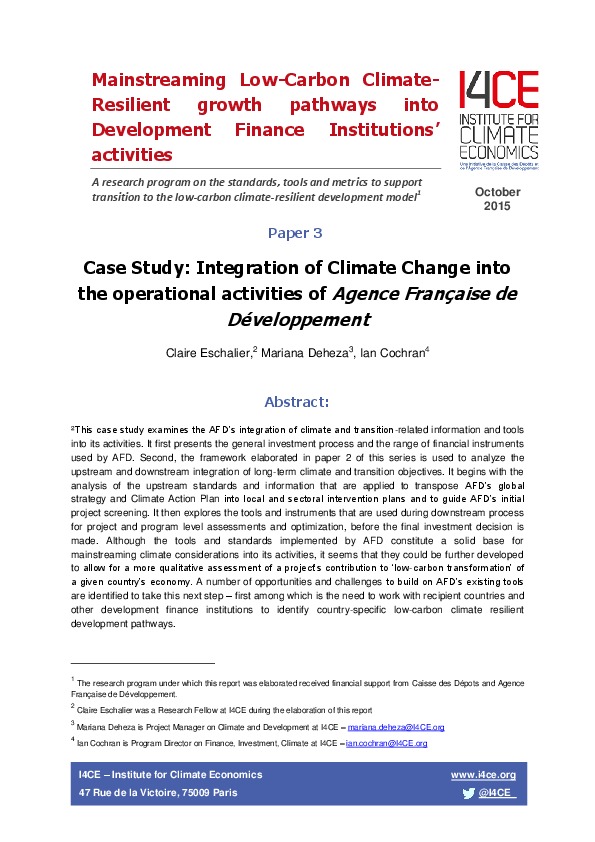Case Study 1: Integration of Climate Change into the operational activities of Agence Française de Développement
Paper three in I4CE’s research project on the standards, tools and metrics to support the mainstreaming of ‘Low-Carbon Climate-Resilient’ growth pathways into activites of development finance institutions
This case study examines the AFD’s integration of climate and transition-related information and tools into its activities. It presents the general investment process and the range of financial instruments used by AFD as well as applies the framework elaborated in paper two of this series to analyze the upstream and downstream integration of long-term climate and transition objectives. The report includes an executive summary providing an overview of these issues as well as an extensive presentation of the instruments, tools and recommendations identified by the authors.
The study provides an overview of how AFD uses upstream standards and information tools to transpose its global strategy and Climate Action Plan into local and sectoral intervention plans and to guide AFD’s initial project screening through its selectivity matrix. It then explores the GHG quantification and vulnerability screening tool used during downstream process for project and program level assessments and optimization, and finally the AFD’s Sustainable Development Second Opinion that is elaborated before final investment decisions are made.
Although the tools and standards implemented by AFD constitute a solid base for mainstreaming climate considerations into its activities, it seems that they could be further elaborated to allow for a more qualitative assessment of a project’s contribution to ‘low-carbon transformation’ of a given country’s development model. A number of opportunities and challenges to build on AFD’s existing tools are identified– first among which being working with recipient countries and other development finance institutions to identify country-specific low-carbon climate resilient development pathways.
The research project under which this paper was elaborated received financial support phase from Caisse des Dépots and Agence Française de Développement during its first phase. The research presented in this publication was carried out by I4CE on an independent basis. CDC group and AFD are not liable under any circumstances for the content of this publication.
